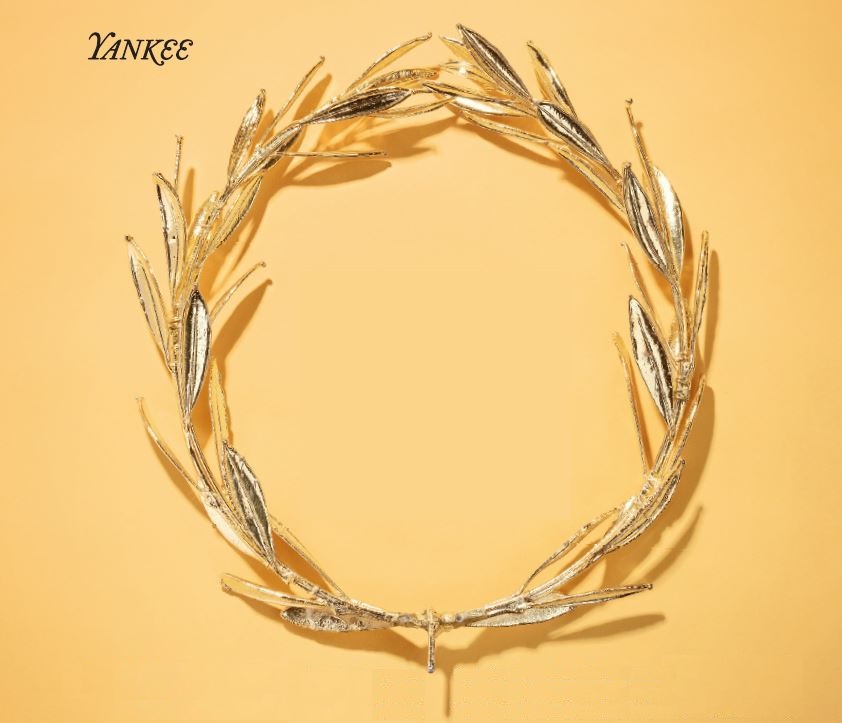
YANKEE
Winners' Circle
How a gift from Greece came to be the Boston Marathon’s symbol of victory.
Wreaths have adorned champions almost since the dawn of civilization. In ancient Greece, the god Apollo was depicted wearing one; in the mortal realm, they were given to the victors of battles and contests. And when the first modern Olympic Games were held in Athens in 1896, the winners were presented with wreaths, just as their forebears had been.
Among those participating in the first Olympics were several members of the Boston Athletic Association, who came home inspired. In 1897 they organized the first-ever Boston Marathon, with 15 runners competing and the winner receiving an olive wreath.
Early on, the marathon’s wreaths were made locally, and, for reasons unknown, thrust upon the winners while crossing the finish line. The results were often comical: A famous 1955 photo shows Mayor John Hynes, wreath raised high, trotting futilely after winner Hideo Hamamura.
Today, the wreaths are presented at a post-race ceremony. They also come directly from Greece, a tradition that traces its roots back to 1946. That year’s Boston Marathon saw a battle between Massachusetts legend Johnny Kelley and former Greek Olympian Stylianos Kyriakides, who was running to raise
funds for his homeland in the wake of wartime devastation. Kyriakides, who at 36 was past his prime, surged late to become both the first Greek runner to wear a Boston winner’s wreath and the first charity runner in the race’s history.
To honor Kyriakides’s historic victory as well as the ties between Athens and Boston, the city often called “The Athens of America,” Greece in 1984 began donating the winners’ wreaths for the race. They’re made from olive branches grown in Marathon, where the Greek warrior Pheidippides launched his famed long-distance run to Athens following the Battle of Marathon. In 2010, to mark the 2,500th anniversary of that battle, the wreaths came dipped in 24 karat gold; they were gilded again in 2014, in tribute to the victims and heroes of the Boston Marathon. They have been gold ever since
Last year the marathon, which is traditionally run on Patriots’ Day, was held in spirit only—a first in its 125-year history. It went virtual, with registered participants running individual 26.2-mile routes later that year, wherever they were in the world. With no “winners,” the Greek wreaths were shared with community groups for fundraising and educational purposes. But when the 2021 race is held this October, new wreaths will be waiting. —JOE BILLS